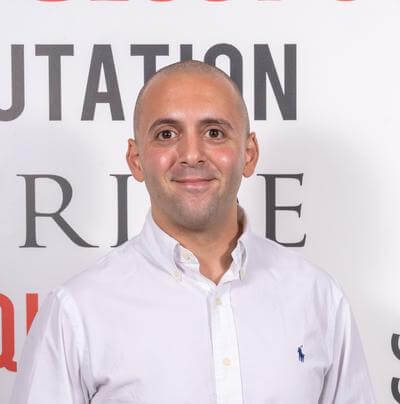We spoke to computer scientist and CEO of Biomemory, Erfane Arwani who leads the team on their mission to develop eco-friendly molecular data storage solutions to address the environmental challenges of traditional data centers. Arwani's work in synthetic biology has led to a new DNA synthesis process that creates long, bio-sourced, biocompatible, and bio-secure DNA fragments, which can be stored without energy input for millennia. His commitment to sustainability and technological innovation is driving significant advancements in reducing the environmental impact of data storage.
Biomemory has developed DNA-based data storage technology. Can you explain how this technology works and what advantages it offers over traditional storage methods?
DNA data storage is a molecular storage technology designed to tackle the major issues in data center growth: storing approximately twice as much data every three years (exponential growth), using less floor space, consuming less energy and rare earth materials, and reducing costs. These goals are not achievable with electronic technologies.
The fundamental principle of DNA storage involves converting the bitstream (binary 0s and 1s) into nucleic acids (the A, T, G, and C letters of DNA). The biggest challenge is the synthesis of the DNA molecule. Biomemory uses synthetic biology to accomplish this, leveraging well-established principles in the food industry to eventually produce DNA data at the cost of sugar. Data retrieval is performed using DNA sequencers.
DNA offers several significant advantages: an incredible data density (about 10 million times greater than traditional methods), longevity of up to several million years, extremely low energy consumption, far greater resilience than electronics (particularly against electromagnetic interference), and 100% recyclability with minimal energy usage.
Your company launched a DNA card with a 1KB storage capacity. What are the following milestones in scaling up this technology to compete with current data storage solutions?
We launched a DNA Card to demonstrate the feasibility of a commercially viable product, and despite the high price, we already have nearly 200 pre-orders. This initiative showcased the integration of all our end-to-end technologies, proving to the public that it's possible.
The next phase begins in 2025. Using our new, fastest-in-the-field writing hardware, we will upgrade our DNA Cards to a 1GB storage capacity. The first group of 1GB DNA Cards have already been sold and will include autonomous reading hardware.
Our roadmap aims to progressively improve speeds and capacities, leading to a storage server that fits in a rack with a total capacity of one Exabyte (1000 Petabytes) by 2030. This solution will cater to various use cases in the banking, defense, and governmental sectors.
DNA storage is known for its longevity. How does Biomemory ensure data integrity and readability over extended periods, potentially thousands of years?
Biomemory ensures the integrity and readability of data stored on DNA through several measures. We employ robust error correction techniques to maintain data accuracy. Additionally, the DNA is encapsulated in protective materials that shield it from environmental factors that could cause degradation. Finally, we conduct accelerated aging tests to simulate and verify the long-term durability of DNA storage over thousands of years.
What are the current limitations of DNA data storage technology, and how is Biomemory working to overcome these challenges?
The current limitations of DNA data storage technology include the high cost of DNA synthesis, the relatively slow read and write speeds, and the challenges of managing large volumes of data. To overcome these obstacles, Biomemory is implementing several strategies:
We are using custom-made enzymes specifically optimized for DNA data storage to reduce synthesis costs.
We have optimized the structure of our DNA blocks and are integrating new sequencing technologies to lower reading costs.
We are also enhancing data management algorithms to handle large datasets better.
Additionally, we are collaborating with industry partners to integrate our solutions into existing infrastructures, facilitating large-scale adoption.
As DNA storage technology advances, what cybersecurity measures is Biomemory implementing to protect stored data from potential biological hacking or manipulation?
From our perspective, there are two key cybersecurity issues to address in DNA data storage:
Preventing DNA expression - We have developed synthetic DNA that cannot express genes. Our synthetic DNA lacks the necessary elements for transcription and translation, ensuring that the DNA remains non-expressive even if errors (similar to genetic mutations) occur. This approach is validated through extensive AI-based models and laboratory experiments. We are collaborating with public laboratories to validate and publish our findings, aiming to establish a foundation for strict regulations in Europe, the USA, and worldwide.
Protecting large data concentrations - A single rack can contain up to one exabyte or more of data. We are integrating biological encryption to prevent physical theft of the storage medium. This ensures that the data remains secure and traceable even if the storage is stolen.
Addressing these issues will ensure that our DNA data storage technology is secure and compliant with future regulations.







